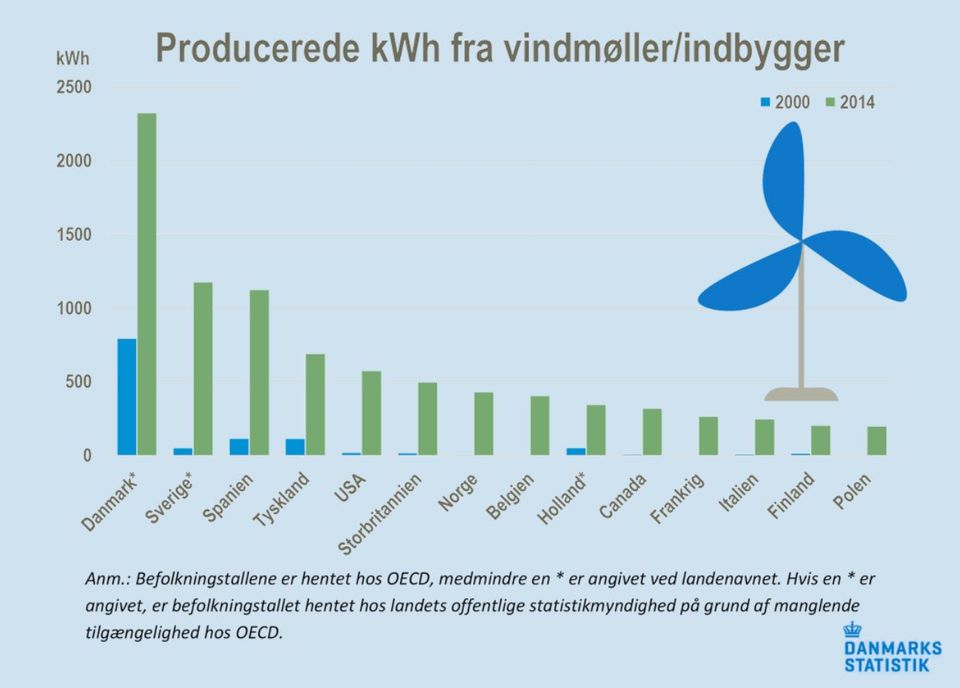When it comes to the amount of wind energy produced per capita, no OECD nation even comes remotely close to Denmark.
According to figures from the OECD and the national statistics keepers, Danmarks Statistik, Danish wind turbines produce over 2,300 kWh/citizen annually – almost twice as much as second-placed Sweden. Spain, Germany, the US, the UK, Norway, Belgium, the Netherlands and Canada completed the top 10.
For the past 15 years, Denmark has been the OECD nation that has produced most wind energy per capita – an amount that has increased by a staggering 192 percent during that time.
READ MORE: Denmark looking into building North Sea wind energy island
PSO boost
Sustainable energy has grown to account for 26.5 percent of Denmark’s total energy production in 2016 – considerably more than the 6.9 percent share in 2000. Wind energy accounted for over one quarter of Denmark’s sustainable energy sources last year.
The increase in wind energy production in Denmark has been given a boost in the shape of recent political initiatives – including the establishment of the PSO tax in 1998 (it was decided last year to phase out the PSO tax by 2022).
It is as yet unknown what consequences cutting the PSO tax will have on wind energy development in Denmark.















